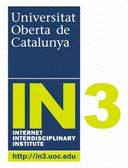Girls, Boys and ICT in the UK: An Empirical Review and Competing Policy Agendas

Abstract
This article examines the empirical research looking at girls’ and boys’ relationship to ICT in the UK secondary school context. The empirical evidence base is discussed in terms of differences in access, use and experience, attitudes, confidence and self-efficacy, motivation and attainment. This paper highlights the competing UK policy agendas operating in this sphere that attempt to address various 'problems', and which impact differentially on girls’ and boys’ relationship with ICT. The employment policy agenda responds to a context of a recognised skills shortage in ICT professions, where women are seen to be able to plug the 'skills gap'. This has lead to various initiatives to encourage school-aged girls to engage with ICT so that they do not automatically rule out ICT linked professions. This paper will discuss one such initiative, Computer Clubs for Girls - an out of school computer club for girls 10 - 14 which aimed to change the perception of an ICT career. Another competing policy agenda can be seen in ICT policy in secondary schools, which seems to be increasingly subsumed into the wider push to increase boys’ attainment. ICT is seen as a way to motivate boys in school, thereby contributing to increased attainment. This paper argues that there is a clear need for more synergies to be created between the different policy agendas and that ICT and gender equality strategies need to be mainstreamed throughout the education and employment spheres.
&
&
Keywords
Secondary Education, girls’ and boys’ relationship to ICT, boy’s underachievement